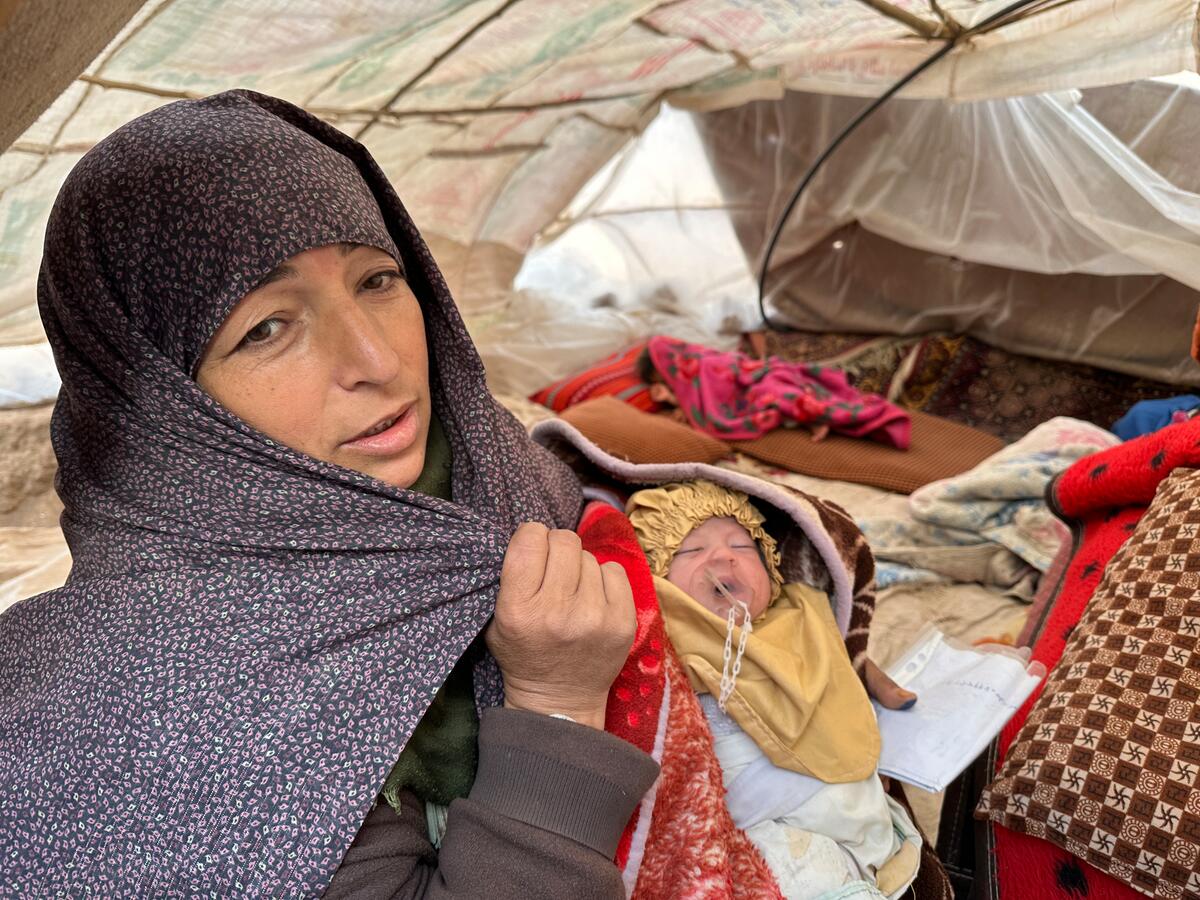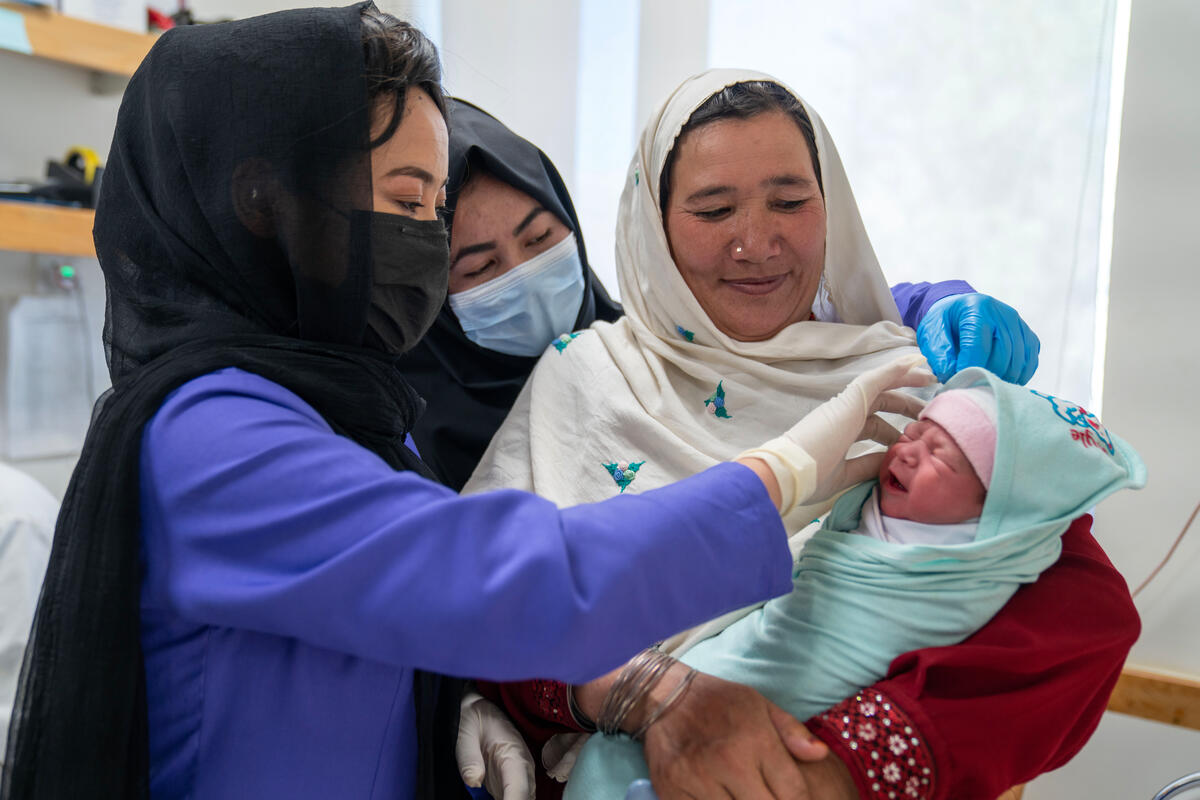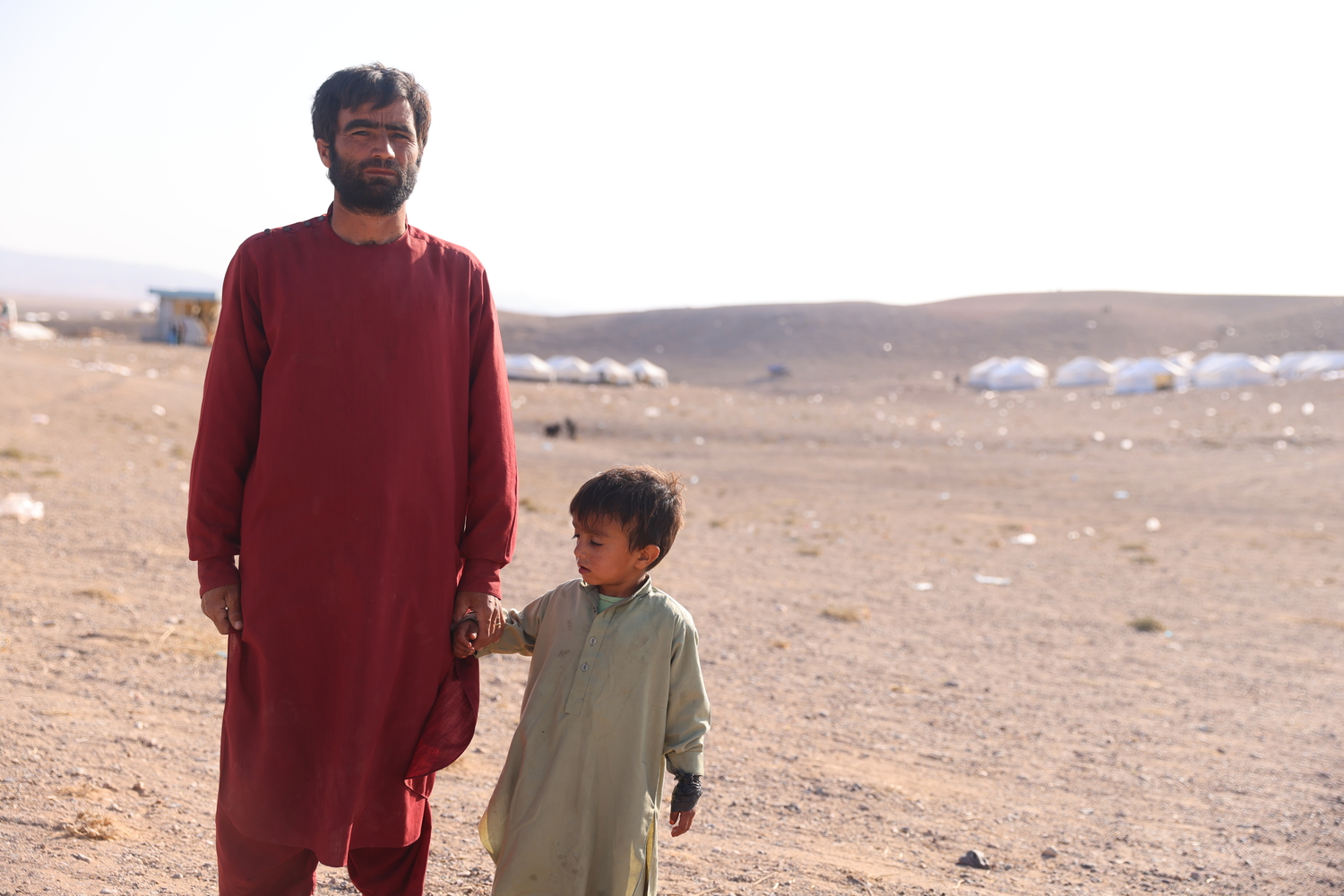Defying nature to develop resilience and resourcefulness in Afghanistan
Defying nature to develop resilience and resourcefulness in Afghanistan

TANGI CLUSTER, Afghanistan, August 23 (UNHCR) - Nine months ago the Tangi Cluster was desolate and barren. Today, however, life is flourishing in the small patch of desert located 10 kilometres from Jalalabad, capital of the eastern Afghan province of Nangarhar.
This is a hard-won victory for a community of more than 280 former refugee families who defied nature with their tireless determination. The government closure of 30 refugee camps in Pakistan's Federally Administered Tribal Area (FATA) last September left these returnees and more than 100,000 others ill-prepared to return to Afghanistan, but with little choice of doing anything else.
FATA is a semi-autonomous tribal region where for three years fighting has raged between Pakistani troops and suspected militants. The majority of FATA returnees are from border provinces such as Nangarhar, Paktya, Khost and Kunar, but after more than 25 years in exile most had lost social networks and support systems as well as land and homes.
The 280 families now thriving in the dry Nangarhar desert, who originated from Kunar province, were no exception. "There is no place for us in Kunar," an elder told UNHCR shortly after the refugee agency learned of their presence in Tangi. "We had nowhere else to go and only came here because we remembered the spot from our days as mujahedeen."
Concerned about their needs and the onset of Afghanistan's harsh winter, UNHCR met with the group soon after their arrival to assess the situation. "We have decided to settle here and are negotiating with the authorities to let us stay," the elder said at the time. "We would be grateful for whatever help you can provide us, but the rest we will manage by ourselves," he added.
And, incredibly, that's exactly what happened. The government allowed them to stay and UNHCR provided shelter materials, water points and relief items. The men found work in Jalalabad or nearby villages and the whole community came together to develop what is now a proper township with rows of well constructed houses, trees growing everywhere and a new mosque.
As the results are visible on the ground, so too are they perceptible in the spirit of the Tangi residents. "The [Soviet] invasion of our country [in 1979] was the only reason we left Afghanistan," said returnee Mohammad Saleem. "It means everything to me today to live among my people in my home country."
20-year-old Alemullah came back with his family of ten and takes great pride as he looks out on his growing community. "You are a worthless person in a refugee camp, but a worthy citizen at home," he said.
The slow pace of development, a shortage of employment opportunities and an increasingly unstable security situation remain daunting challenges for the sustainable reintegration of returnees in Afghanistan. It is no surprise to people familiar with the country that former refugees struggle to rebuild their lives and that, for some, rebuilding means nothing more than a daily fight for survival.
In total, more than 4.6 million Afghans have returned from exile since UNHCR began assisting voluntary repatriation in 2002. Though many returnees can attribute their reintegration to a fair amount of outside support, what this small group in Tangi achieved is a success story written in large part through resilience and resourcefulness.
By Mohammed Nader Farhad in Tangi Cluster, Afghanistan








